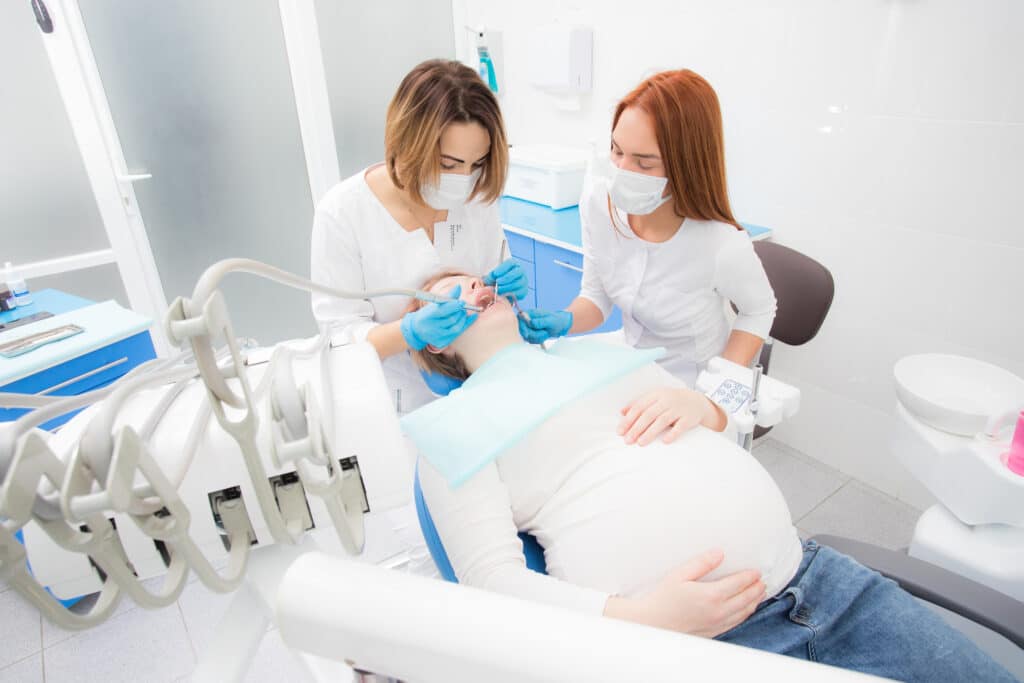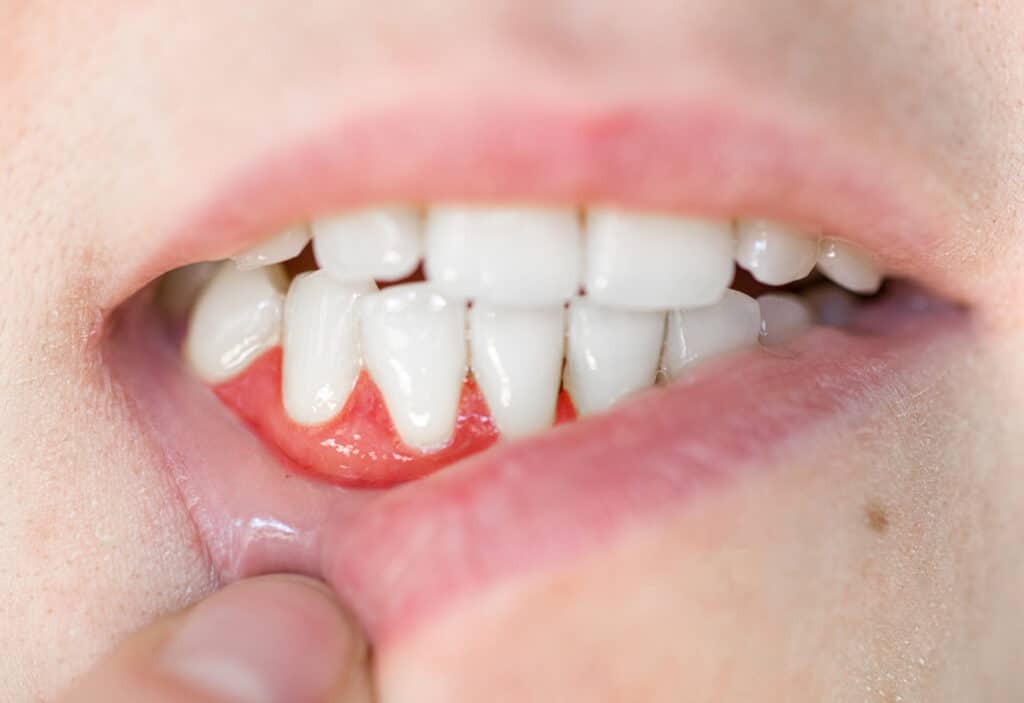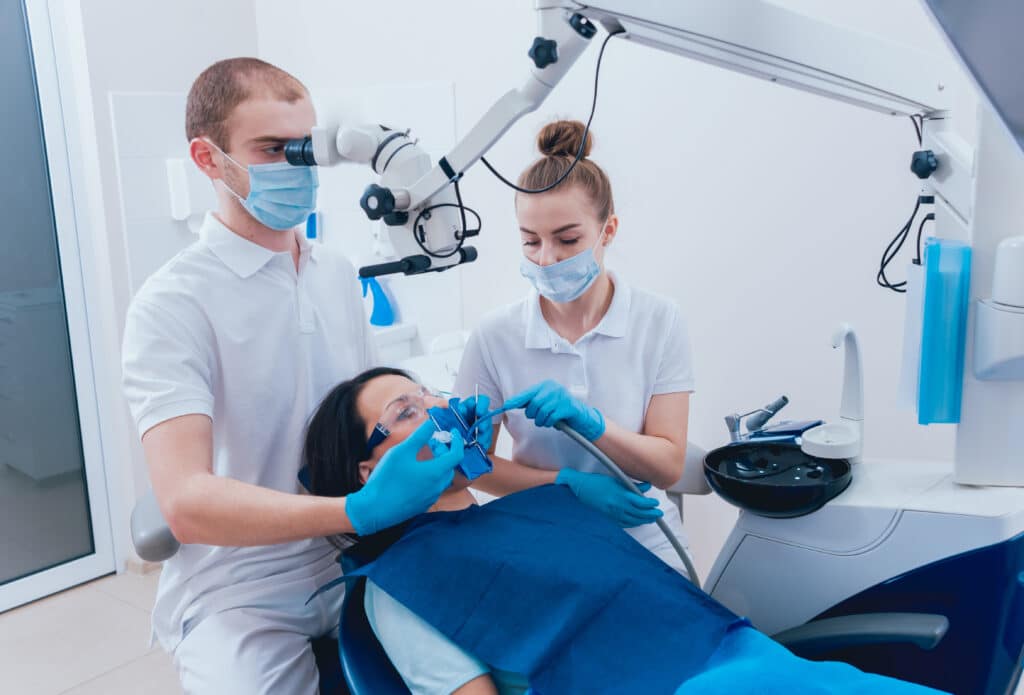
If you are feeling anxious before an upcoming root canal, it is important to know that you aren’t alone. Dental anxiety before a root canal is a common concern for many dental patients, but there are practical steps you can take to alleviate your fears and make the experience more manageable.
At David G. Johnson, DDS., we understand how impactful your anxiety before a root canal can be. This anxiety may even prevent you from seeking the treatment altogether. If you are experiencing anxiety and want to reduce it before going into your root canal, keep reading to see what our team recommends.
What is a Root Canal
A root canal is a dental procedure designed to treat infected or damaged teeth. During this procedure, your endodontist removes the infected pulp, a soft tissue containing nerves and blood vessels, from inside your tooth. They will then clean and disinfect the root canals.
The process begins with numbing the tooth and surrounding area with local anesthesia for patient comfort. They will access the pulp chamber, remove the pulp, and clean the inside of your tooth thoroughly. After the root canal is done, the space is filled with biocompatible material to seal it and prevent the spread of further infection.
Sometimes, a dental crown is used to restore the tooth’s strength after the procedure. Root canal treatments are necessary when the pulp is infected due to deep decay, trauma, tooth fractures, or repeated dental procedures. It can help save your teeth and maintain your smile for years to come.

Is Dental Anxiety Common?
If you have been to the dentist or endodontist before, you have likely experienced it before. However, you might wonder if it is common to experience this anxiety. While going to the dentist is common, it isn’t uncommon for patients to experience anxiety before a root canal and many other dental procedures.
In fact, as much as 36% of the American population experiences some kind of anxiety before a visit to the dentist. You may find yourself experiencing more anxiety before larger dental procedures, like root canals. However, there are several ways to reduce anxiety before a root canal that should help make the procedure more comfortable.
Ways to Reduce Anxiety Before a Root Canal
If you want to reduce anxiety before a root canal, there are several things you can do that can help relax your mind and distract you from the procedure. Some things you can do to reduce your anxiety include:
1. Relaxation Techniques
There are several relaxation techniques you may want to use to help reduce anxiety before a root canal. Some of the most common and beneficial relaxation techniques include deep breathing and visualization. While you might not believe these relaxation techniques are going to be helpful, activities like visualization and deep breathing can help you calm your mind and relax your heart rate. You might want to try out these techniques ahead of time, so you aren’t attempting them for the first time when your anxiety is piqued. This will help you get the hang of these techniques and allow you to go into the procedure well-prepared.
2. Use of Sedation
While not every dental procedure will require sedation, it might be a good idea to talk to your endodontist about your sedation options to help reduce anxiety before a root canal. There are several different sedation options you may be offered, including nitrous oxide, also known as laughing gas, and oral sedatives. These sedation options will help you relax before the procedure begins, and may even put you to sleep until the procedure is over. It is best to speak to your endodontist about this before your root canal appointment, so they can have any necessary sedation medications available for you.

3. Audio Distraction
If you aren’t using sedation for your procedure, you might want to consider bringing an audio distraction to help reduce anxiety before a root canal. Whether you enjoy listening to music or audiobooks, having an audio distraction is a great way to keep your mind busy during the procedure. If you have noise-cancelling headphones, your chosen audio distraction may also do a good job of blocking out the sound of the dental equipment. This might even be a good time to listen to your favorite podcast’s newest episode, an audiobook you’ve been looking forward to, or an album you love.
4. Bring a Support Person
If you are experiencing anxiety before a root canal, it might be a good idea to see if a trusted friend or family member can accompany you to your appointment. With a trusted support person by your side, you may be able to quell your anxiety before going into the procedure. They can provide you with emotional support and reassurance prior to the start of the procedure, and may even act as a pleasant distraction before your endodontist begins. Whether you want a parent or good friend to go with you, a support person is a good way to reduce your anxiety.
5. Ask Plenty of Questions
The very best way to reduce anxiety before a root canal is by asking your trusted endodontic team plenty of questions ahead of the procedure. When you are experiencing anxiety, unknown variables are often a big part of feeling this way. By asking your team plenty of questions ahead of time, you can help to ease this anxiety. With years of experience, your endodontic team is likely going to have answers to all of the questions you have ahead of time. You may even want to write out a list of questions ahead of time so you don’t forget anything.

Reduce Anxiety with a Trusted Endodontist
One of the easiest ways to reduce anxiety before a root canal is by working with a trustworthy endodontic team, like our team at David G. Johnson, DDS. With years of experience helping patients across the Northern Utah area prepare for and go through root canals, we’re confident that we can do the same for you. Our amazing endodontist, Dr. David Johnson, has been practicing endodontics in Northern Utah since 1990, and we are confident that he can help you through any root canal procedure.
From root canals to cracked chip repairs and traumatic injury treatment, our team does it all. If you are ready to schedule a root canal or you would like to speak with a member of our team to help you reduce anxiety before a root canal, don’t hesitate to contact us at our Layton or Centerville locations today.










